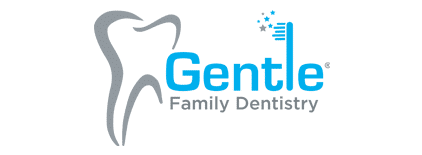The Importance of Baby Teeth

Gentle Family Dentistry
382 US Highway 46 Suite 3A
Budd Lake, NJ 07828
(973) 691-1200
OFFICE HOURS
Monday
8:30am - 5:00pm
Tuesday
8:30am - 6:00pm
Wednesday
Closed
Thursday
8:30am - 6:00pm
Friday
8:30am - 2:00pm
Saturday
Closed

Baby Teeth Importance in Budd Lake
Many parents in Budd Lake think of baby teeth as just an intermediary step that requires only minimal dental care until the real, permanent teeth start to set in later in childhood. But the truth is the baby teeth play an essential role in a child’s growth. It is with baby teeth that a child first learns to eat and speak properly. The baby teeth also lay out the “path” that the permanent teeth will follow when they grow in. It’s crucial that baby teeth, even though they are destined to fall out, are correctly positioned in the mouth so the permanent teeth will follow the same ideal path.
AN EARLY START
Even though they’re not even visible, baby teeth start growing even before a child is born and continue this growth once the child leaves the womb. The first signs of teeth “erupting” may appear as early as three months, and the growth spurt for teeth begins in earnest after six-month mark. In the ordinary course of events, the full set of baby teeth will have erupted by the age of three.
It’s during this time that you will have to think about brushing a child’s teeth and being more careful about monitoring their oral health. You will also have to make a judgment about how to handle that most childlike of infant activities, thumbsucking since this activity can have an impact on tooth growth.
THUMBSUCKING
It is important to understand that in a way, consistent thumbsucking has the same function on the mouth that dental braces do in later years. When a child sucks his or her thumb, any adjacent teeth—or emerging teeth—are going to be exposed to a gentle but consistent amount of pressure. If that pressure persists, in the same way that braces do, every day, then the pressure has the potential to move teeth in different directions.
The big difference here is where dental braces are a controlled application of force to move teeth into a desired, straighter position; thumbsucking can do the opposite. It can force teeth out of a straight position and into a crooked one, to better accommodate the thumb.
CONTROLLING THE IMPULSE
The best way to control a child’s thumbsucking is to do so gradually. Don’t just make him or her go “cold turkey” in one day, but limit the usage. Allow thumbsucking in the bedroom, or while sleeping. If thumbsucking is a coping mechanism during stressful periods, develop other coping strategies with the child. Use a reward system incentivizing the child with treats, praise and other rewards for sustained periods of not thumbsucking. If a child has mostly stopped, except for sleeping, then try having the child wear gloves at night or something else as a barrier.
By taking a child’s baby teeth growth seriously, keeping the teeth clean, and watching for potential problems such as the influence of thumbsucking, you stand a much better chance of having healthier, stronger baby teeth. And in so doing, you set the stage for proper, healthy growth of the permanent teeth that will follow. Contact the team at Gentle Family Dentistry today for more information.


